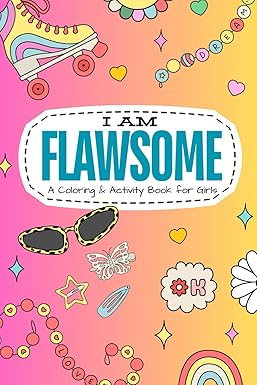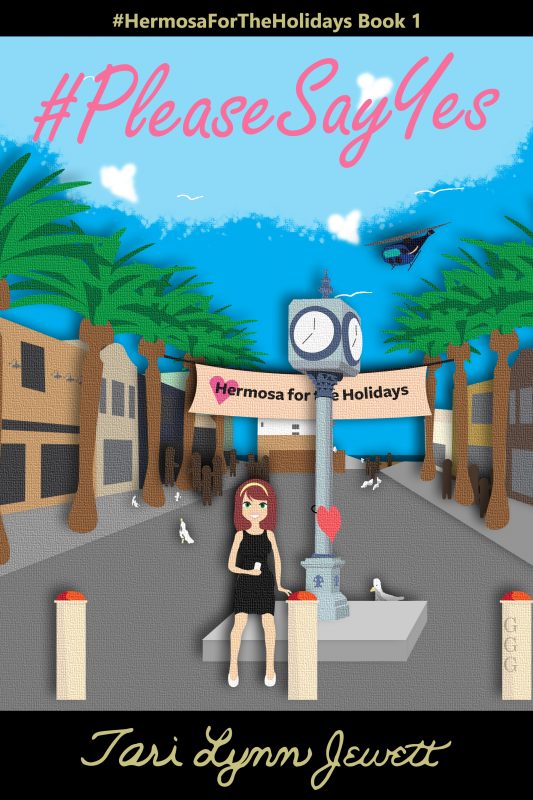It’s About Time by Monica Stone, Member at Large
November 19, 2009 by Marianne H. Donley in category Archives tagged as Member At Large, Monica StonerTime is a four letter word. No matter how hard we work, we never have enough time. We can save time, waste time, lose time, make time, but we can never create time. We can kill time, find time, steal time, juggle time but still time gets away from us. Somehow twenty four hours just don’t seem to be enough time yet I suspect if we could create thirty six hour days we’d still not have enough time.
As writers we seem to constantly need just a little bit more time. Time to write of course but also time to perform those every day miracles that seem to need our time and no one else’s. Somehow only we can plan meals, sort laundry, mop floors. And if we add more commitments to our time all too often we find time for those commitments and not our writing.
When good causes come calling I find it’s easier to commit myself to a donation than to time but of course they’d rather have some of my precious time. How can we put a monetary value on something we can’t touch and never have enough of?
Then there’s the whole sleep thing. We’re told we need more sleep but again there just does not seem to be time for eight hours of doing nothing but recharging our bodies. Of course this is one of the places where we really do need to make time or we’ll find ourselves running out of time.
I understand there are some time management blogs and courses available. I’ll look into them as soon as I can find the time.
Monica Stoner
You have enemies? Good. That means you’ve stood up for something.
-Winston Churchill
e-maginings: e-Book Reader Market Heats Up by Lyndi Lamont
November 17, 2009 by A Slice of Orange in category Archives tagged as e-maginings, e-readers, Lyndi LamontThe e-book reader market is heating up this fall with the upcoming release of Barnes & Noble’s nook. B&N is hyping it as “the world’s most advanced eBook Reader, and I have to say, it looks great. It features e-ink display and AT&T’s Wi-Fi, so you can browse, buy and download books anywhere you find the network, including the B&N brick-and-mortar stores. At $259, it costs as much as Amazon’s Kindle 2, but offers the option of adding a memory card for additional storage. A nice feature is the full-color touchscreen at the bottom of the display where you can browse for titles or use the keyboard.
The only feature that has authors a little concerned is the nook’s “lend ebooks to friends” feature. Some of us are saying, WTF? Their site says books can be loaned for up to two weeks. I’m assuming they disappear from the reader at that point as library e-books do after the due date. I’d have to see that in action before I can endorse this feature.
The December issue of PC World magazine has a review of e-book readers, alas too soon for the nook to be included. They liked the Sony Reader Touch Edition at $300, but rated the Kindle 2 as the best buy at $259. All Sony and Kindle models were rated Very Good, with the Interead Cool-ER listed as Good. Two they did not recommend at this time are the Astak EZReader PocketPro and Foxit eStick Reader. Both need to do some “catching up” in PC World’s opinion. Click here here to read more.
PC World’s point about the e-book market being Balkanized is right on the mark. The problem hasn’t just been coming up with great hardware; there’s a software problem, too. And as long as publishers and distributors insist on using proprietary content it’s going to continue to be that way. It will be interesting to watch how this all plays out.
Lyndi Lamont
aka Linda McLaughlin
http://www.lyndilamont.com
http://www.lindamclaughlin.com
HOLY STRIKE DUTY, BATMAN by Bobbie Cimo
November 13, 2009 by A Slice of Orange in category Eye on Hollywood by Bobbie Cimo tagged as Bobbie Cimo, Eye on HollywoodToday, most of the original stages at CBS-TV City are either being used for game shows or soap operas. But back in the day, along with soap operas and game shows, they were also used for sitcoms and weekly variety shows. Television City was so busy, it was practically going 24/7. In order to be able to get ready for the next day’s tapings , we would have to schedule a “turn around crew†consisting of stagehands, to come in during the middle of the night, to strike one set and set up a new one.
Almost every job dealing with production is attached to a union, whether it be a make-up artist, hairdresser, lighting director, stagehand, cameraman, or truck driver–all the way up to the director, actor, and even to the actor’s stand-in. Without any of these people, production would come to a virtual standstill or at the very least, making it difficult to complete. And when there’s no production, there’s no revenue for anyone.
Negotiations of contracts usually start months in advance between union leaders and Management–both wanting to get the best and fairest deal for their side. But no matter how hard each team tries, sometimes a mutual agreement can’t be reached. When this happens, a strike is called and all union personnel are ordered to walk off their jobs immediately, which leaves only management as their replacements, until a settlement can be reached.
When I say “managementâ€, that means all employees who aren’t part of a union. And just like the union members have to abide by their leaders who ask them to leave their jobs, management is expected to fill in for them. It’s called working strike duty. Training doesn’t usually start until we learn that negotiations are going poorly. And then we start cramming, like college students for a test. We’re taught either by professional strike training teams or management, who use to be union people themselves.
Have you ever heard someone say, anybody can write a book? Oh, yeah, just let them try it.
The first union job I trained for was as a boom operator. For all of you who aren’t familiar with the term, a boom operator is the person who follows the actors around the studio with a microphone on a pole high above the talent’s head. Today, outside of the soap operas, booms aren’t used very often. They’ve been replaced with microphones hidden in the actors’ clothes. Being a boom operator sounds easy, right? Wrong!
After hoisting yourself up on a three foot high platform, the first thing you’re taught is how to put the microphone together on a long rod, that is swung over the actor’s head. Putting the thing together isn’t all that easy, and neither is operating the boom itself. You can swing it in different directions and use a reel to move it in and out, sort of like an upside down fishing rod. Not only is it heavy, but it’s hard on your arms, shoulders and neck. Your main goal is to have the mic just the right place above the actor’s head to pick up his voice, but out of camera shot. This would be simple if the actors just stood in one spot. Unfortunately they don’t. One moment they can be sitting, the next they’re standing or walking around the set. My greatest fear was I was going to hit someone in the head. More than a few times, my greatest fear almost came true…especially when I would relax for a moment and the boom would come crashing forward.
Besides worrying about your mic not showing on camera–picking up a balanced sound and concentrating on not conking anyone on the head, you have to be careful not to cast any shadows that can be seen in the shot. While I’m doing my balancing act in the air, below me is someone pushing and pulling me around on my Ivory Tower, making sure I get to where I need to be. Can anyone say, Dramanine, please?
They once relieved me from my boom duties and gave me a shot at being a camera person. When they did, I thought I’d found my niche. But I was wrong.
During taping of a show, they used what was called the multi-camera technique (something that started as far back as the “I Love Lucy†days). This is when they have multi cameras on the floor and the director calls the shots from the booth into a little earpiece inside the cameraman‘s ear. “And close up from camera threeâ€. We did have rehearsals, but besides practicing your moves, and learning how to operate the side handles for those zooming in and wide shots, you had to know how to run backwards and from side to side–all while pushing your camera around, and avoid colliding with someone else’s. This is all done while looking through a lens. The pressure was enormous and I was glad to give up my post. Actually, I don’t think they ever asked me to come back to it.
Usually, professional stand-ins were hired for us to practice our skills on, but then there were those few times when they would ask us to pick up a script and read the lines for our co-workers to practice on. I, personally couldn’t act my way out of paper bag, so I found the whole thing rather embarrassing. The good thing was no “Soap†actress ever felt threatened about losing her job because of newly discovered talent.
A few years later, once again, I was called in for training. This time, I was placed in the audio booth to do sound effects. I liked this job a lot better, and my timing for ringing the doorbell, slamming a door and tooting a car’s horn were ingenious. Unfortunately, there was more to the job than just doing live sound effects. They also wanted me to perform the sweetening, which is adding sounds after the show had been taped. The audio board had hundreds of gadgets on it…rotary knobs, faders, power mixers and switches. So it wasn’t just a matter of pushing levers or turning knobs. Once the sound effects were used the first time around, you had to learn to cue it up by looping it on the machine so it could be repeated again for the next time. Everything was in the timing. This is not a job for a technically challenged person as myself. But I did get good reviews. But personally I wasn’t comfortable in doing it and was thrilled when there was no strike called for that year, either.
Years later, when another threat of a strike came up, I was assigned as a video tape operator. This called for late night training. I think of all the jobs this was the easiest, but by far the most boring.
The tape went from camera into film can and then transferred onto a video tape machine, where it could be shown over the network and into the viewers’ homes. Threading a video machine is like threading a sewing machine. The most important part of the process is remembering which thingamajig the tape is suppose to go around. But once that’s completed, the rest is simple. You just have to babysit the tape machine to make sure everything runs smoothly–and make sure you don’t nod off while doing it. We were also given lessons on how to edit the tape, by cutting and splicing it together.
Because I’m a night person, I was excited to find out that my training would be starting at 11PM. But the novelty soon wore off after a few days. Working all day and then returning again at night was not my thing. I realized my best night work was at home working on my book and in pajamas.
As luck would have it, (as much for me, as for “Productionâ€) I never had to work strike duty for real. And I never lost any of my union friends over it. They knew, like them, I was following orders.
And the next time you look at somebody’s job and think you can do it just as good as they can, I would say to you, “Not so fast, my “Cape Crusader†friend, it’s probably harder than you think it is….POW!, WHAM! & BLAM!
As Time Goes By…we must never forget by Jina Bacarr
November 11, 2009 by A Slice of Orange in category Archives tagged as Casablanca, Confessions of a Podcast Goddess, Veterans Day, World War IIThere’s a scene in the classic film Casablanca when Résistance fighter Victor Laszlo (Paul Henreid) tells the musicians in Rick’s Cafe to play La Marseillaise after Major Strasser leds a group of Nazi soldiers in a rendition of “Die Wacht am Rhein” (Watch on the Rhine), a German nationalist song. It’s a powerful message about the stirring emotions music brings out in all of us–especially when freedom is at stake.
Interesting, but a similar incident happened two days after the Germans marched into Paris on June 14, 1940 in a restaurant in Montmartre called La Crémaillère. (Who can forget Rick’s words to Ilsa in Casablanca when he says, “The Germans wore gray, you wore blue…”)
An Englishman ordered a drink at the bar in this classic restaurant built in the early 1900s for himself and his companion, an American lady. She noticed a piano in the corner and started playing God Save the King to bolster the courage of her British friend.
The Nazis immediately told her it was verboten.
“America is not at war with Germany,” she said calmly and continued playing. The Germans were perplexed and angry until she explained to them that she was playing an American song called “My Country ’tis of Thee.”
Same tune, different words, but the power of playing the song in defiance remains. According to eyewitness reports, the Germans apologized, bowed, clicked their heels and left.
Let us not forget on this Veterans’ Day all the brave soldiers, both military and civilian, who have dared to stand up against tyranny.
As the heroine in my World War II novel, Cleopatra’s Perfume, Lady Eve Marlowe says, “I survived, dear reader, angry and filled with the passion to save lives and end this terrible war. The obsession that was never far from my mind comes sharply into focus. Now I will use that passion against them. The Nazis. The urge to be part of the machine to defeat the enemy is irresistible to me.”
Jina Bacarr is also the author of The Blonde Geisha , Naughty Paris, Tokyo Rendezvous, a Spice Brief, and Spies, Lies & Naked Thighs
February 2010: meet The Blonde Samurai
“She embraced the way of the warrior. Two swords. Two loves.â€
What’s in a job? by Abby Gaines
November 9, 2009 by A Slice of Orange in category Writing tagged as Abby GainesOne of the fun things about writing novels is the different careers and jobs I get to explore as an author, all in the interest of research. A well-chosen job adds affects kinds of aspects of a character—the pressures they face, their likes and dislikes, their ambitions, their education, their skills…. Often I choose a job for my character seemingly out of thin air, then discover that choice says something vital about my character.
Affiliate Links
A Slice of Orange is an affiliate with some of the booksellers listed on this website, including Barnes & Nobel, Books A Million, iBooks, Kobo, and Smashwords. This means A Slice of Orange may earn a small advertising fee from sales made through the links used on this website. There are reminders of these affiliate links on the pages for individual books.
Search A Slice of Orange
Find a Column
Archives
Featured Books
#PLEASE SAY YES (#HermosafortheHolidays Book 1)
So, you think social media has taken over YOUR life?
More info →Newsletter
Contributing Authors
Search A Slice of Orange
Find a Column
Archives
Authors in the Bookstore
- A. E. Decker
- A. J. Scudiere
- A.J. Sidransky
- Abby Collette
- Alanna Lucus
- Albert Marrin
- Alice Duncan
- Alina K. Field
- Alison Green Myers
- Andi Lawrencovna
- Andrew C Raiford
- Angela Pryce
- Aviva Vaughn
- Barbara Ankrum
- Bethlehem Writers Group, LLC
- Carol L. Wright
- Celeste Barclay
- Christina Alexandra
- Christopher D. Ochs
- Claire Davon
- Claire Naden
- Courtnee Turner Hoyle
- Courtney Annicchiarico
- D. Lieber
- Daniel V. Meier Jr.
- Debra Dixon
- Debra H. Goldstein
- Debra Holland
- Dee Ann Palmer
- Denise M. Colby
- Diane Benefiel
- Diane Sismour
- Dianna Sinovic
- DT Krippene
- E.B. Dawson
- Emilie Dallaire
- Emily Brightwell
- Emily PW Murphy
- Fae Rowen
- Faith L. Justice
- Frances Amati
- Geralyn Corcillo
- Glynnis Campbell
- Greg Jolley
- H. O. Charles
- Jaclyn Roché
- Jacqueline Diamond
- Janet Lynn and Will Zeilinger
- Jeff Baird
- Jenna Barwin
- Jenne Kern
- Jennifer D. Bokal
- Jennifer Lyon
- Jerome W. McFadden
- Jill Piscitello
- Jina Bacarr
- Jo A. Hiestand
- Jodi Bogert
- Jolina Petersheim
- Jonathan Maberry
- Joy Allyson
- Judy Duarte
- Justin Murphy
- Justine Davis
- Kat Martin
- Kidd Wadsworth
- Kitty Bucholtz
- Kristy Tate
- Larry Deibert
- Larry Hamilton
- Laura Drake
- Laurie Stevens
- Leslie Knowles
- Li-Ying Lundquist
- Linda Carroll-Bradd
- Linda Lappin
- Linda McLaughlin
- Linda O. Johnston
- Lisa Preston
- Lolo Paige
- Loran Holt
- Lyssa Kay Adams
- Madeline Ash
- Margarita Engle
- Marguerite Quantaine
- Marianne H. Donley
- Mary Castillo
- Maureen Klovers
- Megan Haskell
- Melanie Waterbury
- Melisa Rivero
- Melissa Chambers
- Melodie Winawer
- Meriam Wilhelm
- Mikel J. Wilson
- Mindy Neff
- Monica McCabe
- Nancy Brashear
- Neetu Malik
- Nikki Prince
- Once Upon Anthologies
- Paula Gail Benson
- Penny Reid
- Peter Barbour
- Priscilla Oliveras
- R. H. Kohno
- Rachel Hailey
- Ralph Hieb
- Ramcy Diek
- Ransom Stephens
- Rebecca Forster
- Renae Wrich
- Roxy Matthews
- Ryder Hunte Clancy
- Sally Paradysz
- Sheila Colón-Bagley
- Simone de Muñoz
- Sophie Barnes
- Susan Lynn Meyer
- Susan Squires
- T. D. Fox
- Tara C. Allred
- Tara Lain
- Tari Lynn Jewett
- Terri Osburn
- Tracy Reed
- Vera Jane Cook
- Vicki Crum
- Writing Something Romantic
Affiliate Links
A Slice of Orange is an affiliate with some of the booksellers listed on this website, including Barnes & Nobel, Books A Million, iBooks, Kobo, and Smashwords. This means A Slice of Orange may earn a small advertising fee from sales made through the links used on this website. There are reminders of these affiliate links on the pages for individual books.









































